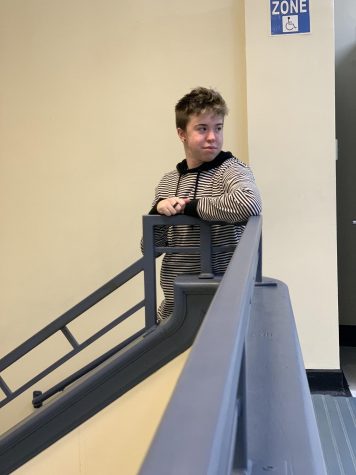Hey, why didn’t I take a summer reading test?
Program changes due to high failure rates
November 8, 2013
First quarter has ended and most students did not have to take a summer reading test.
What happened?
As it turns out, there was a summer reading program available during this past summer, but it was not mandatory for most students as has been the practice in recent history. Students in AP Literature an AP Language and Composition still took a test on required books. Without the enforcement of a test and much advertisement, summer reading options went undetected by many.
The reading list remained posted on the school’s web site well into the school year, with 19 books suggested by teachers and staff members alike, from English teachers to Social Studies teachers to neighboring zoo employees like Deb Kutska. Book topics included the Revolutionary War to comedy to drama.
So why was summer reading no longer mandatory?
Several different factors affected the English department’s decision, but the main reason was the fact that data showed students were not reading the material even when tested. On average, 60% of students started out the school year failing their summer reading test. English Department Chair Sarah Johnson did note that this data did not reflect AP students with whom the summer reading program was highly successful and which required those students to read one or two books based on the AP classes they were intending to take this year.
“There’s a disappointment,” Johnson said. “We love reading and we want other people to love what we love. But what I don’t really love is for a kid to walk into class and by September 1 they are already failing.”
The consequences of early failure can change the complexion of an entire school year.
“At best, students are anxious about the class and at worst they blame the teacher,” Johnson said.
Johnson, a veteran with more than fifteen years of teaching experience, re-evaluated the summer reading program with an eye towards how it would work best and achieve success.
“If you don’t assess [the book], no one reads it, but at the same time, if you assess it and no one is reading it anyway, something is not working,” Johnson said.
Within the English department, the choice was a tough one to agree upon.
“I feel badly that summer reading was cancelled for regular students but kept for AP students. It points to an attitude of, ‘Well, regular students aren’t going to read, so why bother?'” said English teacher Larry Forberg. “The English department took the easy way out.”
One idea that surfaced was to improve the program by including the surrounding community: parents, community groups, librarians outside of RB, and others to band together to promote summer reading. The idea was to get back to the basics of what summer reading was about: provide choice for reading, make the books available, and get authors to come and visit the schools. However, all of these goals cost money, and budgets are tight.
Johnson also suggested that the summer reading program might become more successful if reading for pleasure was promoted more heavily and if reading during free time became something more common at RB, something seen as a fun activity.
While the non-mandatory program flew below the radar this year, Johnson hopes it will be back and improved with higher participation.
“We’re trying to be smart about it, and really get a lot of buy in,” Johnson said.
Will the mandatory summer reading program be back? It is unclear. For students, it’s a break from summer reading for now, and for teachers, it’s a chance to review and amend the program.


